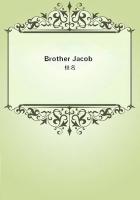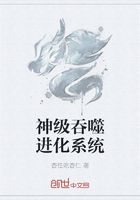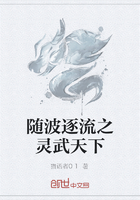The night came on; and it having gone abroad that the King would pass by the road, many of the villagers went out to see the procession. When the two Lovedays and Mrs. Garland were gone, Anne bolted the door for security, and sat down to think again on her grave responsibilities in the choice of a husband, now that her natural guardian could no longer be trusted.
A knock came to the door.
Anne's instinct was at once to be silent, that the comer might think the family had retired.
The knocking person, however, was not to be easily persuaded. He had in fact seen rays of light over the top of the shutter, and, unable to get an answer, went on to the door of the mill, which was still going, the miller sometimes grinding all night when busy. The grinder accompanied the stranger to Mrs. Garland's door.
'The daughter is certainly at home, sir,' said the grinder. 'I'll go round to t'other side, and see if she's there, Master Derriman.'
'I want to take her out to see the King,' said Festus.
Anne had started at the sound of the voice. No opportunity could have been better for carrying out her new convictions on the disposal of her hand. But in her mortal dislike of Festus, Anne forgot her principles, and her idea of keeping herself above the Lovedays. Tossing on her hat and blowing out the candle, she slipped out at the back door, and hastily followed in the direction that her mother and the rest had taken. She overtook them as they were beginning to climb the hill.
'What! you have altered your mind after all?' said the widow. 'How came you to do that, my dear?'
'I thought I might as well come,' said Anne.
'To be sure you did,' said the miller heartily. 'A good deal better than biding at home there.'
John said nothing, though she could almost see through the gloom how glad he was that she had altered her mind. When they reached the ridge over which the highway stretched they found many of their neighbours who had got there before them idling on the grass border between the roadway and the hedge, enjoying a sort of midnight picnic, which it was easy to do, the air being still and dry. Some carriages were also standing near, though most people of the district who possessed four wheels, or even two, had driven into the town to await the King there. From this height could be seen in the distance the position of the watering-place, an additional number of lanterns, lamps, and candles having been lighted to-night by the loyal burghers to grace the royal entry, if it should occur before dawn.
Mrs. Garland touched Anne's elbow several times as they walked, and the young woman at last understood that this was meant as a hint to her to take the trumpet-major's arm, which its owner was rather suggesting than offering to her. Anne wondered what infatuation was possessing her mother, declined to take the arm, and contrived to get in front with the miller, who mostly kept in the van to guide the others' footsteps. The trumpet-major was left with Mrs.
Garland, and Anne's encouraging pursuit of them induced him to say a few words to the former.
'By your leave, ma'am, I'll speak to you on something that concerns my mind very much indeed?'
'Certainly.'
'It is my wish to be allowed to pay my addresses to your daughter.'
'I thought you meant that,' said Mrs. Garland simply.
'And you'll not object?'
'I shall leave it to her. I don't think she will agree, even if I do.'
The soldier sighed, and seemed helpless. 'Well, I can but ask her,' he said.
The spot on which they had finally chosen to wait for the King was by a field gate, whence the white road could be seen for a long distance northwards by day, and some little distance now. They lingered and lingered, but no King came to break the silence of that beautiful summer night. As half-hour after half-hour glided by, and nobody came, Anne began to get weary; she knew why her mother did not propose to go back, and regretted the reason. She would have proposed it herself, but that Mrs. Garland seemed so cheerful, and as wide awake as at noonday, so that it was almost a cruelty to disturb her.
The trumpet-major at last made up his mind, and tried to draw Anne into a private conversation. The feeling which a week ago had been a vague and piquant aspiration, was to-day altogether too lively for the reasoning of this warm-hearted soldier to regulate. So he persevered in his intention to catch her alone, and at last, in spite of her manoeuvres to the contrary, he succeeded. The miller and Mrs. Garland had walked about fifty yards further on, and Anne and himself were left standing by the gate.
But the gallant musician's soul was so much disturbed by tender vibrations and by the sense of his presumption that he could not begin; and it may be questioned if he would ever have broached the subject at all, had not a distant church clock opportunely assisted him by striking the hour of three. The trumpet-major heaved a breath of relief.
'That clock strikes in G sharp,' he said.
'Indeed--G sharp?' said Anne civilly.
'Yes. 'Tis a fine-toned bell. I used to notice that note when I was a boy.'
'Did you--the very same?'
'Yes; and since then I had a wager about that bell with the bandmaster of the North Wes*** Militia. He said the note was G; I said it wasn't. When we found it G sharp we didn't know how to settle it.'
'It is not a deep note for a clock.'
'O no. The finest tenor bell about here is the bell of Peter's, Casterbridge--in E flat. Tum-m-m-m--that's the note--tum-m-m-m.'
The trumpet-major sounded from far down his throat what he considered to be E flat, with a parenthetic sense of luxury unquenchable even by his present distraction.
'Shall we go on to where my mother is?' said Anne, less impressed by the beauty of the note than the trumpet-major himself was.
'In one minute,' he said tremulously. 'Talking of music--I fear you don't think the rank of a trumpet-major much to compare with your own?'
'I do. I think a trumpet-major a very respectable man.'
'I am glad to hear you say that. It is given out by the King's command that trumpet-majors are to be considered respectable.'















